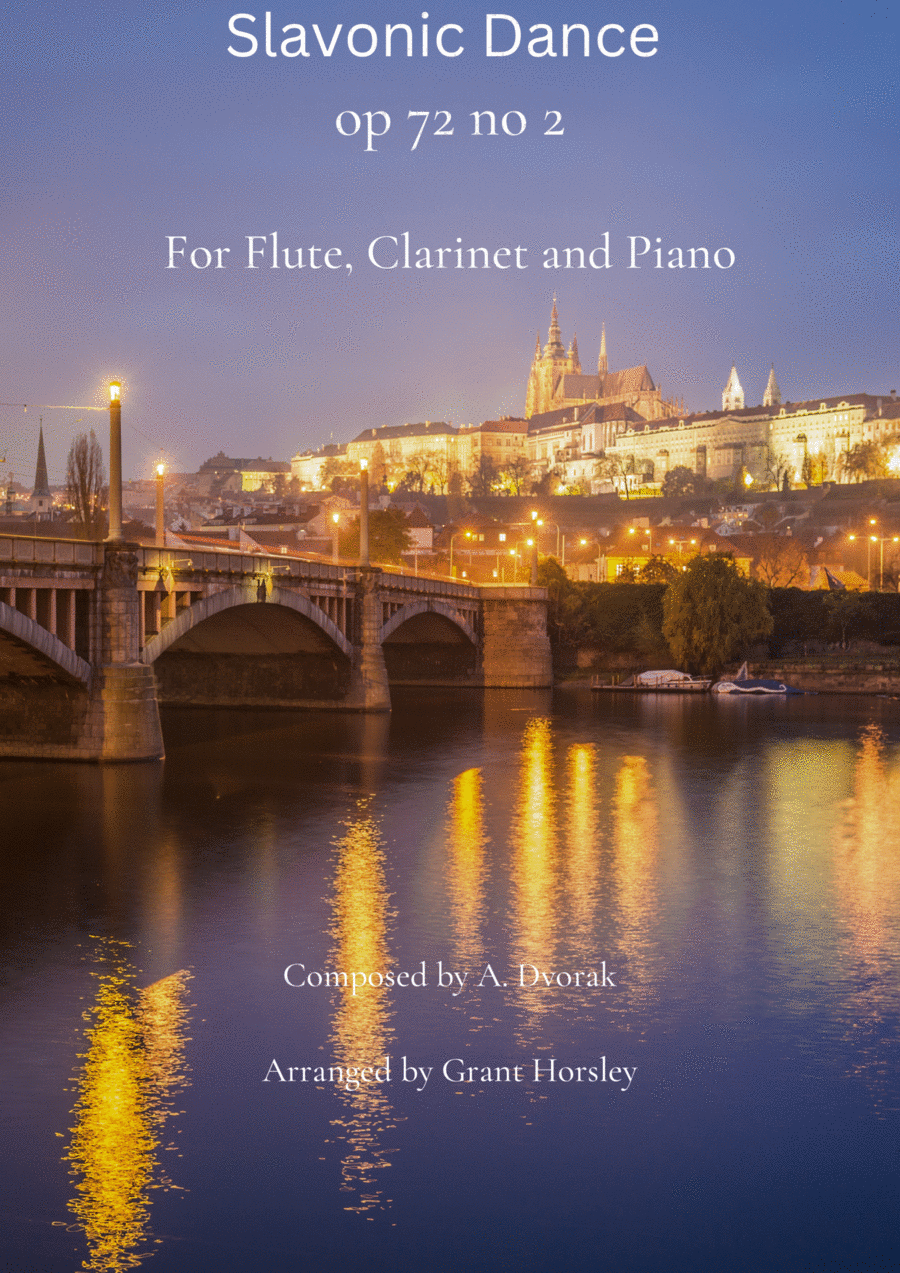Instrumental Duet,Piano Clarinet,Flute,Instrumental Duet,Piano - Level 2 - Digital Download SKU: A0.1372589 Composed by Antonin Dvorak. Arranged by Grant Horsley. 19th Century,Classical,Contest,Festival,Folk,Romantic Period. 20 pages. Grant Horsley #956921. Published by Grant Horsley (A0.1372589). Slavonic dances are inspired by the folk rhythms and styles of Slavic nations, This wonderful piece composed in 1886 is one of the finest and most well known.It has been arranged for early intermediate players, although the whole score is on the youtube link for you to assess. I have written it in 3/4 time instead of the original 3/8 for ease of reading. The phrasing has been adapted to keep as close to the original as possible.There are also small variations in the final section to keep the arrangement cohesive. It has been covered in so many ways for such a variety of instrumental combinations as it's such a popular memorable piece. It is useful for concerts, recitals, weddings, incidental music etc.It is roughly 5 minutes in length.Price is for full score and parts.
